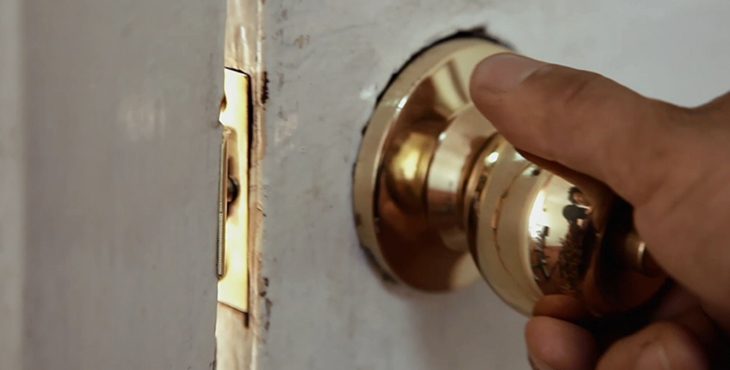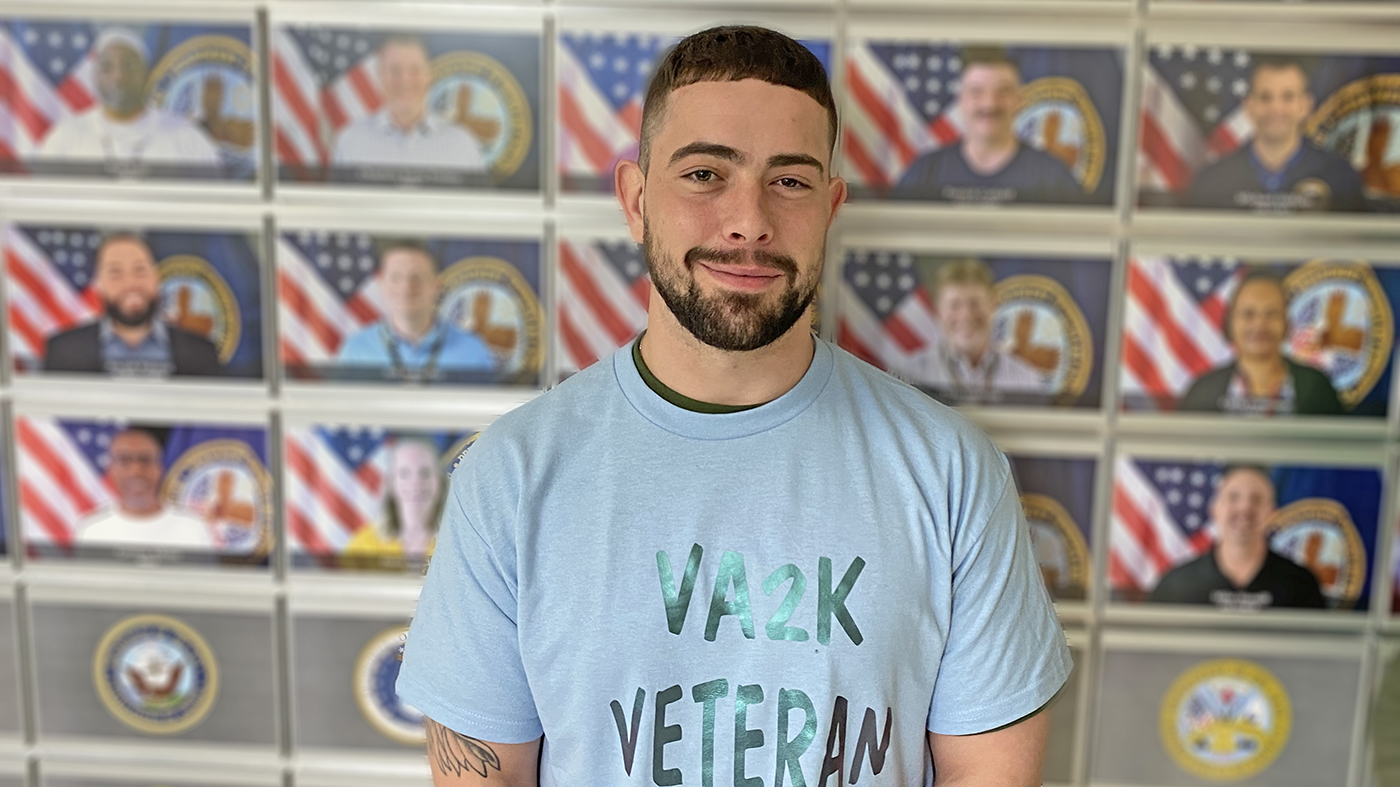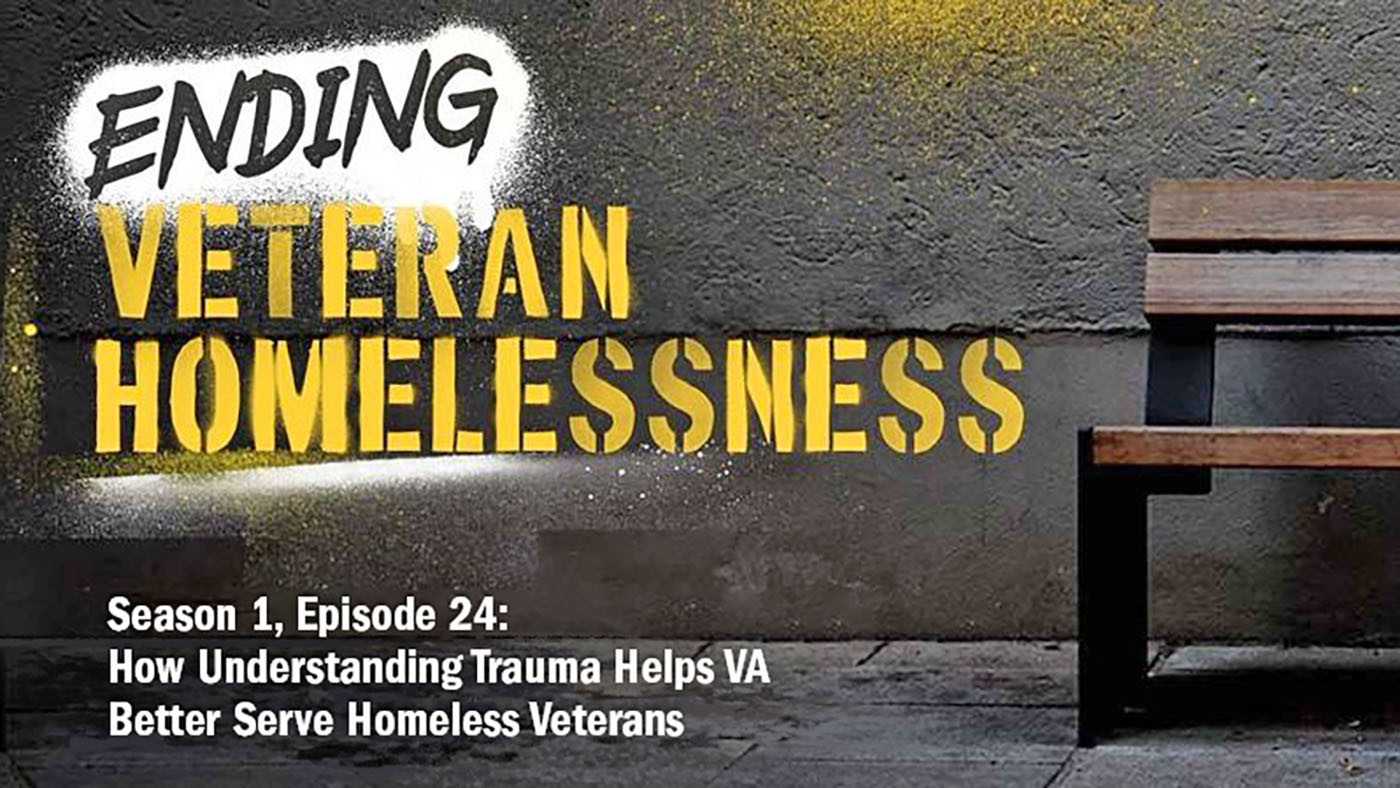Strong community partnerships are vital to ending Veteran homelessness — and VA employees play a key role in building these relationships. Through VA’s collaboration with the U.S. Department of Housing and Urban Development (HUD), eligible Veterans receive HUD-VA Supportive Housing vouchers (VASH). These vouchers make market-rate housing affordable for formerly homeless Veterans and provide them with wraparound services, such as mental health services, financial stewardship, and legal assistance to help them stay housed.
The HUD-VASH program targets chronically homeless Veterans who are the most vulnerable due to severe mental and/or physical health problems and/or substance use disorders; however, other Veterans who are homeless with diminished functional capacity are also eligible for the program.
The VA Boston Healthcare System and its employees who support the VA homelessness programs have forged exemplary housing partnerships that leverage HUD-VASH and other VA programs to help the most vulnerable Veterans get back on their feet.
New England Center and Home for Veterans
Located in the heart of Boston, the New England Center and Home for Veterans in partnership with VA Boston Healthcare System’s HUD-VASH Program, Maloney Property Management Company, and the Boston Housing Authority provides 35 recently renovated housing units to homeless Veterans. Each unit has a HUD-VASH Project Based voucher attached. These units opened at the end of 2016.
The New England Center and Home provides Veterans with much more than just a place to rest their heads.
“The center compliments the VA by providing opportunities for groups and for food — [Veterans] can eat breakfast, lunch and dinner here. There is full-time security and maintenance, so it’s all of those services in addition to what VA provides,” said Lisa Masciulli, VA social worker who works with the 35 HUD-VASH Veterans housed at the center.
In partnering with VA, the New England Center can provide VA case managers like Masciulli to connect the Veterans residing in the units with mental health services, substance use counseling, and any other assistance they may need. For many of the residents who have been chronically homeless, these support systems have helped provide them with the stability and assurance they need to get on a better track.
Most of the 35 Veterans living at the center have adjusted to their new home and have seen an improved quality of life. One Veteran, who was homeless for 17 years, has been set up with nutrition services, including a support for aging Veterans, a comprehensive medical team, a visiting nurse, a housekeeper, and regular check-ins with Masciulli . The Veteran also reconnected with their sister. The two hadn’t spoken in 20 years.
“With everyone together, [the Veteran] has really acclimated and is doing really well,” said Masciulli.
Howard House
Around the same time that the New England Center and Home’s updated units became available, Howard House opened. Located 25 miles south of Boston on the Brockton Campus of VA Boston, Howard House has 14 project-based HUD-VASH vouchered units. VA Boston’s HUD-VASH Program partners with Peabody Properties, which —under an Enhanced Use Lease agreement — is the landlord for the Howard House. Veterans at Howard House live in studio apartments, share a community center, and have access to a VA case manager’s office on-site and team-based support with staffing from both the VA Boston’s HUD-VASH Program and Peabody Properties.
“Our relationship with Peabody Properties has been amazing. It’s an agency that has invested in providing this kind of housing, so we’re benefiting from that fact,” said Cheryl Simmons, the HUD-VASH supervisor assigned to Howard House. “Right now, our partnership works so they manage the building and VA provides the case management.” In addition to case managers, there are VA peer support specialists who assist Veterans with everyday tasks like grocery shopping and budgeting.
Many Veterans who reside at Howard House are older, but the support systems allow them to maintain their independence. For a World War II Veteran, that independence was an important part of his or her quality of life. The team at Howard House was able to secure the appropriate services and assistance for the resident, including a housekeeper, and the Veteran was able to get to medical appointments much easier by living on the VA campus.
Simmons said the Veteran had a “network of people that would constantly check in,” and by being in a communal environment, the resident got to share stories about old times and felt accepted by others in the community.
Howard House has given its 14 residents a place to sleep and call home — and build relationships: “They all know each other, they all check in on each other, and if one of them seems a little off, we’ll … have 13 other Veterans coming to us saying, ‘Hey! So-and-so doesn’t seem like his usual self,’” said Simmons.
Martin Realty
In 2013, VA Boston’s HUD-VASH Program and Martin Realty began working together to secure units for Veterans who have HUD-VASH vouchers and are looking for housing.
“I think what really sold [Martin Realty] is when we talked to them about case management and what we could offer that is different about HUD-VASH,” said Becky Faherty, who oversees the Housing component of VA Boston’s HUD-VASH Program.
When Martin Realty was renovating an apartment complex with 16 units south of Boston, the organization put its trust in employees at the VA Boston Healthcare System’s HUD-VASH Program — allowing them to make referrals to the units as Martin Realty waived credit checks and other application processes that can hinder a Veteran exiting homelessness. Making the partnership even stronger, Martin Realty built a staff office on the first floor of the apartment complex, and the realty agency provided an office around the corner from the apartment complex to easily facilitate meetings between VA HUD-VASH case management staff and the Veterans living in those units
One Veteran living at Martin Realty’s property was struggling with hoarding causing dangerous living conditions, but the organization didn’t give up on the Veteran. Martin Realty gave VA case managers the time they needed to work with the Veteran to clean some of their belongings out of the apartment.
“If this Veteran had been housed anywhere else, it would have been a very different outcome,” said Simmons, who supervises a number of the staff assigned to HUD-VASH housing partnerships.
Making Partnerships Successful
These housing partnerships are meticulously maintained by the HUD-VASH Program employees at VA Boston Healthcare System, and their tactic for success is clear — communication.
“Setting up avenues for communication to happen on a regular basis is something that we’ve found to be really successful,” Judy Lipton, VA Boston Healthcare System HUD-VASH program manager, said of
the many partnerships that the health care system has secured and helped build.
Masciulli , Simmons, Faherty, and Lipton, along with the 48 other multi-disciplined VA Boston HUD-VASH staff, all implement some form of weekly communication with their partners, whether it’s a call with the whole team, or an email with important highlights from the week. In addition to regular communication, VA Boston Healthcare System has a landlord hotline, brochure, landlord open houses, landlord newsletter, landlord recognition and awards nights, and a welcome packet that includes contact information and explains when the landlord should call a HUD-VASH case manager or is interested in renting to a HUD-VASH Veteran.
Partnerships like these help VA get closer to the goal of ending Veteran homelessness. If you are a landlord, property manager, or developer who would like to assist with providing affordable housing for Veterans exiting homelessness, please contact us at homelessvets@va.gov. Other ways to get involved in the mission include hosting or participating in an Operation Reveille or a Stand Down event, or hiring homeless Veterans to work for your business.
Through local and federal collaborations, communities like Boston — and others across the nation — can take the steps to effectively end Veteran homelessness.
More Information
- Visit VA’s website to learn about housing initiatives and other programs for Veterans exiting homelessness.
- Refer Veterans who are homeless or at imminent risk of becoming homeless to their local VA medical center, where VA staff are ready to assist, or urge them to call the Homeless Veteran’s Hotline at 1-877-4AID-VET (1-877-424-3838).

Topics in this story
More Stories
Eoighin McGilligan’s transition didn’t turn out as planned... he and his five children were nearly homeless, twice.
On the Ending Veteran Homelessness podcast, learn how the harm reduction approach to substance use can help homeless Veterans.
A unique program at Boston VA uses the principles of trauma-informed care to serve homeless Veterans with empathy and understanding.










